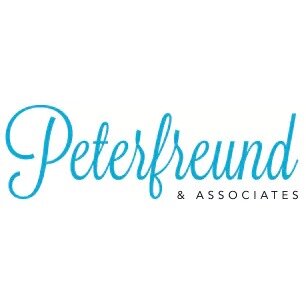Best Bad Faith Insurance Lawyers in Antwerp
Share your needs with us, get contacted by law firms.
Free. Takes 2 min.
List of the best lawyers in Antwerp, Belgium
About Bad Faith Insurance Law in Antwerp, Belgium
Bad Faith Insurance law in Antwerp, Belgium, revolves around the accountability of insurance companies and their obligation to fulfill the terms of their insurance policies with integrity and honesty. When an insurance company denies a legitimate claim or engages in deceptive practices to avoid paying a claim, it may be acting in bad faith. Belgian law provides certain protections for policyholders, ensuring that insurers act justly and fulfill their contractual responsibilities. Understanding the intricacies of Bad Faith Insurance is crucial for policyholders to protect their rights and effectively challenge any unjust actions by insurers.
Why You May Need a Lawyer
There are several scenarios where individuals might require legal help concerning Bad Faith Insurance in Antwerp:
- When an insurance claim is unjustly denied or delayed.
- If your insurer is offering an insufficient settlement compared to your coverage.
- If the insurer fails to investigate the claim adequately.
- When policy conditions are misrepresented or policy provisions are misinterpreted by the insurer.
- If there is evidence of deception or fraud by the insurance provider.
Engaging a lawyer familiar with Bad Faith Insurance can help policyholders navigate these challenges, ensuring their rights are upheld and they receive the compensation they are entitled to.
Local Laws Overview
Bad Faith Insurance cases in Antwerp are influenced by national Belgian laws and regulations concerning insurance contracts. Key aspects include:
- Insurance Contract Law: Insurance contracts in Belgium must adhere to the principles of transparency and fairness. Both parties-insurer and insured-are expected to act in good faith.
- Duty to Inform: Insurers are required to provide clear and accurate information regarding policy conditions, exclusions, and the claims process.
- Consumer Protection: Belgian law provides robust consumer protection mechanisms, including regulations that prevent unfair terms in insurance contracts.
- Dispute Resolution: Policyholders can seek resolution through the courts or alternative dispute resolution mechanisms such as mediation.
Frequently Asked Questions
What constitutes bad faith by an insurance company?
Bad faith involves actions by an insurance company that are unreasonable, dishonest, or intended to cheat the policyholder out of rightful compensation, such as unjustified claim denials or excessive delays.
How can I prove bad faith by my insurer?
Evidence that could support a bad faith claim includes correspondence with the insurer, documentation of claim rejections, expert opinions, and policies that show the insurer's obligation to settle the claim.
Is there a deadline for filing a bad faith insurance claim in Belgium?
Yes, Belgium imposes statutory time limits (prescription periods) for filing claims, generally up to five years from the moment you become aware of the insurer’s bad faith actions.
Can I handle a bad faith claim without a lawyer?
While it is possible to address claims without legal representation, an experienced lawyer can significantly increase the likelihood of a successful outcome by navigating complex legal processes effectively.
What compensation might I receive in a bad faith insurance case?
Compensation can include the original insurance benefits due, interest on delayed payments, and potentially additional damages for inconvenience or distress caused by the insurer's actions.
Does bad faith insurance apply to all types of insurance?
Yes, bad faith principles apply to most types of insurance, including health, auto, homeowners, and life insurance policies, among others.
Are insurance companies in Belgium heavily regulated?
Yes, Belgian insurance companies are subject to stringent regulations to ensure consumer protection and fair practices, overseen by the Financial Services and Markets Authority (FSMA).
Can I negotiate with my insurer before seeking legal action?
It is advisable to attempt negotiation with your insurer before resorting to legal action. Insurers may resolve issues through internal review processes or mediation.
What role does the FSMA play in insurance disputes?
The Financial Services and Markets Authority (FSMA) supervises insurance companies, ensuring compliance with financial regulations, and it can act as a resource for policyholders facing challenges.
How long does it typically take to resolve a bad faith insurance claim?
The duration can vary greatly depending on the case’s complexity, the availability of evidence, and the legal or negotiation processes involved. Resolution can take from months to several years.
Additional Resources
For further assistance on bad faith insurance issues, consider the following resources:
- Financial Services and Markets Authority (FSMA): Offers guidance and oversight for insurance regulations in Belgium.
- Consumer Protection Bodies: Such as Test-Achats/Test-Aankoop, which advocate for consumer rights and can provide support in insurance disputes.
- Mediation Services: Professional mediation can be a viable option to resolve disputes without court intervention.
Next Steps
If you need legal assistance regarding bad faith insurance, consider the following steps:
- Gather Documentation: Collect all relevant documents, including insurance policies, communications with the insurer, and claim forms.
- Consult a Lawyer: Seek a legal professional specializing in bad faith insurance cases. They can offer advice tailored to your situation and help you understand your legal options.
- Consider Mediation: Explore the option of mediation for a more amicable and faster resolution.
- Evaluate Court Action: If necessary, prepare to file a lawsuit with the advice of your legal counsel.
Seeking expert legal advice early can help safeguard your rights and increase the likelihood of achieving a favorable outcome in your case.
Lawzana helps you find the best lawyers and law firms in Antwerp through a curated and pre-screened list of qualified legal professionals. Our platform offers rankings and detailed profiles of attorneys and law firms, allowing you to compare based on practice areas, including Bad Faith Insurance, experience, and client feedback.
Each profile includes a description of the firm's areas of practice, client reviews, team members and partners, year of establishment, spoken languages, office locations, contact information, social media presence, and any published articles or resources. Most firms on our platform speak English and are experienced in both local and international legal matters.
Get a quote from top-rated law firms in Antwerp, Belgium — quickly, securely, and without unnecessary hassle.
Disclaimer:
The information provided on this page is for general informational purposes only and does not constitute legal advice. While we strive to ensure the accuracy and relevance of the content, legal information may change over time, and interpretations of the law can vary. You should always consult with a qualified legal professional for advice specific to your situation.
We disclaim all liability for actions taken or not taken based on the content of this page. If you believe any information is incorrect or outdated, please contact us, and we will review and update it where appropriate.









